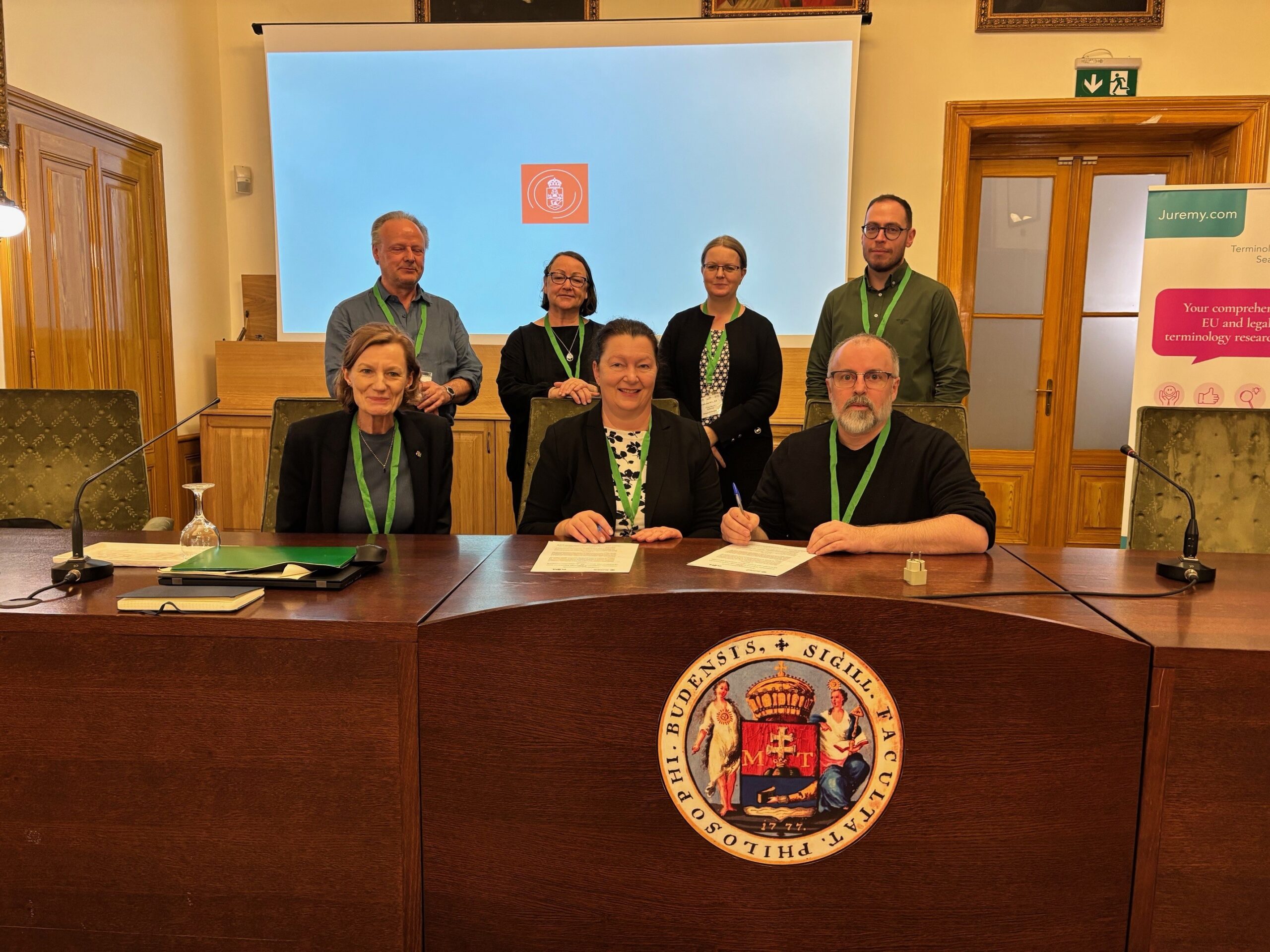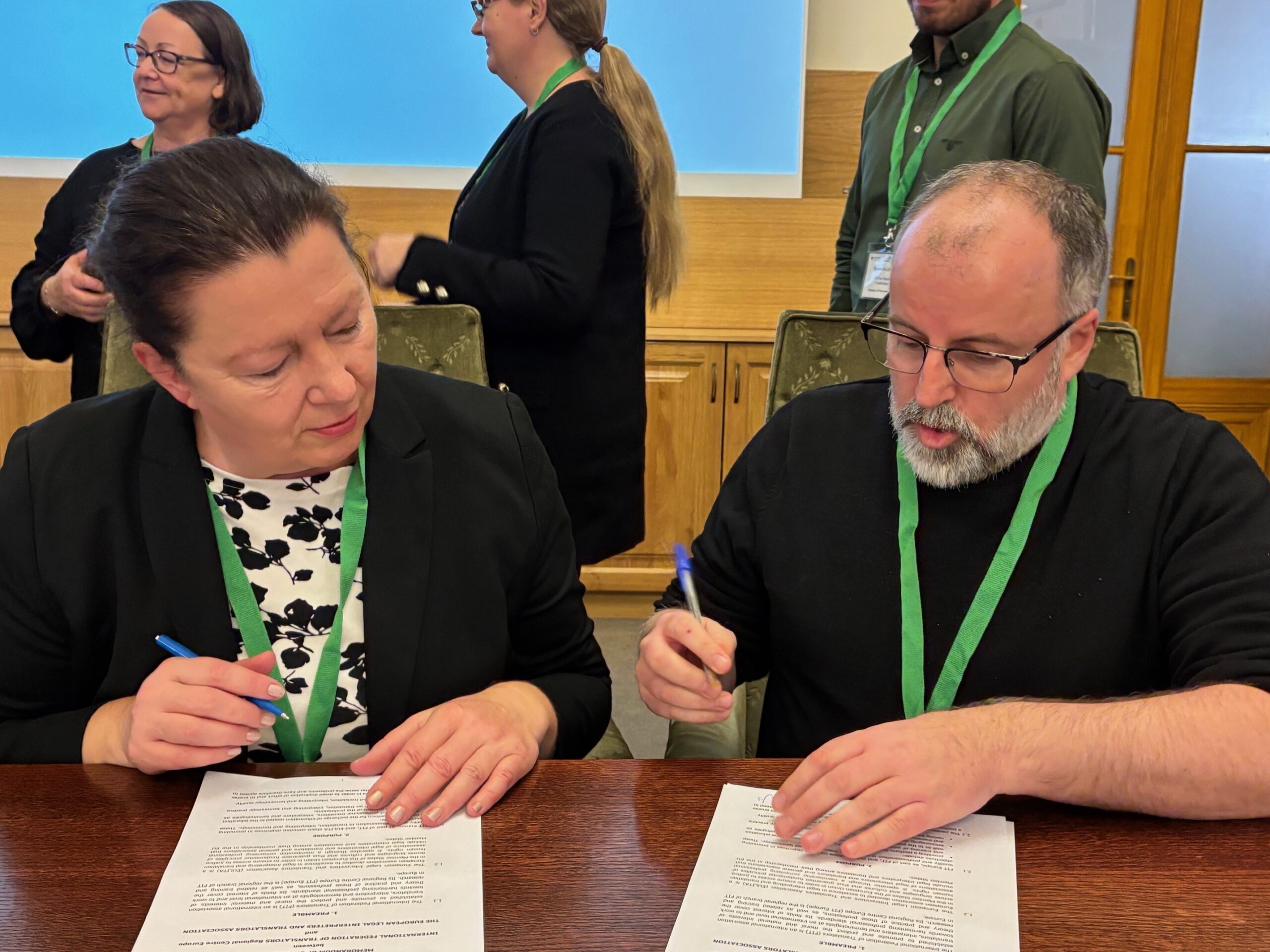
At the recent meeting of FIT Europe in Budapest in November 2024, FIT and EULITA signed an updated memorandum of understanding to renew their longstanding collaboration in the face of new global challenges.
The founding of EULITA
When Sweden held the European Union (EU) Presidency in 2009, it presented the Stockholm Programme, which announced an EU-wide framework for collaboration in the area of justice, freedom, and security during the period from 2010 to 2014. This so-called ‘third pillar’ (cooperation in the fields of justice and home affairs) was intended to promote citizens’ rights. Among the programme’s various initiatives, it also planned to draft and adopt four directives, including one on the right to interpretation and translation in criminal proceedings. The Directorate-General for Justice and Home Affairs (as it was called then) invited all stakeholders to contribute their experience and proposals to this plan, and this was where the FIT committee in charge of court interpreting and legal translation could provide insights into court interpreting practices in EU member states. As FIT is an international federation not focused exclusively on European interests, the EU authorities suggested that a European professional association for legal interpreters and translators be set up to serve as a contact for drafting Directive 2010/64/EU. As a result, an EU-funded project, managed by Erik Hertog of Lessius Hogeschool Antwerp, helped to set up the European Legal Interpreters and Translators Association (EULITA) in November 2009.
The first MOU
Like those of FIT, full EULITA members are professional associations. As this new organisation grew, it became necessary to define the relationship between FIT and EULITA, so as to avoid any overlap and competition. As a result, a first Memorandum of Understanding was signed by FIT President Marion Boers and EULITA President Liese Katschinka at the FIT Congress in Berlin in August 2014. The MOU delegated FIT contacts with EULITA to the Europe Regional Centre, and it listed the exchange of information and attendance at conferences and/or workshops as its main activities.
A pause, then renewed resolve

With the COVID crisis, this cooperation came to a halt. However, John O’Shea, current chair of FIT Europe, and Barbara Rovan, current EULITA president, agreed to renew the relationship, as issues like artificial intelligence, for example, or international standards on interpreting and translation require joint efforts by all language professionals concerned. The recent meeting of FIT Europe in Budapest, Hungary, in November 2024 served as the venue for signing an updated memorandum of understanding. The forthcoming EULITA general assembly and conference in Ljubljana, Slovenia, on 5–6 April 2025 will be the next occasion for the signers to come together.
Liese Katschinka
